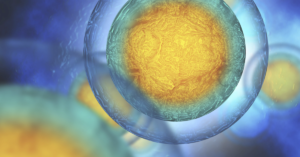
Unexplained infertility is a frustrating diagnosis for couples who have been trying to conceive for at least a year with no known medical issues. Intrauterine insemination (IUI) is a common fertility treatment used to increase the chances of conception by placing sperm directly into the uterus. However, in some cases, IUI may not result in a successful pregnancy, leading to what is known as failed IUI. If unsuccessful IUIs persist, ovulation induction may be recommended by an IVF specialist. Ovulation tests can also be used to track fertility and improve the chances of successful IUI or other fertility treatments.fertility treatments.
The effectiveness of IUI for unexplained infertility varies depending on factors such as age, fertility history, and underlying medical conditions. Studies have shown that the success rate of IUI for unexplained infertility is around 10-20% per cycle. However, if ovulation induction or ovulation tests are used in combination with IUI, the success rate may increase. In cases of unsuccessful IUIs, couples may consider IVF treatment as an alternative option.
There are several reasons why IUI may fail in cases of unexplained infertility. One possible reason is that there may be undiagnosed issues with egg quality or sperm function that cannot be detected through routine testing, such as ovulation tests. In such cases, couples may consider undergoing more advanced treatments like IVF treatment, which involves fertilizing the eggs with sperm outside the body and transferring the resulting embryos to the uterus. Alternatively, couples may opt for natural methods like having regular sex to increase their chances of conception. However, if these methods fail, embryo transfer may be a viable option to consider. It is important to consult with a fertility specialist to discuss all available options.
For couples who experience failed IUI and have received an unexplained infertility diagnosis, it may be necessary to consider alternative fertility treatments such as in vitro fertilization (IVF). IVF involves retrieving eggs from the ovaries and combining them with sperm in a laboratory setting before transferring the resulting embryo(s) back into the uterus. Prior to considering IVF, standard infertility testing, including ovulation tests, should be conducted. After IVF, a pregnancy test can be taken to determine if the procedure was successful.
One reason why IVF may work where IUI has failed is because it bypasses certain barriers to conception that exist within the female reproductive system. For example, during an IVF cycle at a fertility clinic or fertility center, medications are used to stimulate the ovaries and produce multiple eggs which can then be retrieved and fertilized outside of the body. This increases the chances of obtaining viable embryos for transfer back into the uterus, especially for those with an unexplained infertility diagnosis who have undergone standard infertility testing.
Factors Affecting Success of IUI Treatment

Age, Sperm Quality and Timing: Factors Affecting Success of IUI Treatment
The success rate of intrauterine insemination (IUI) treatment varies depending on several factors. These factors can impact the quality of the sperm used in the procedure, as well as the timing of the procedure in relation to ovulation. Moreover, underlying medical conditions can also affect the success of IUI treatment. If you have received an unexplained infertility diagnosis, it may be helpful to visit a fertility clinic or center for standard infertility testing to determine if IUI is a viable option for you.
One critical factor that affects the success rate of IUI treatment is age. The age of female patients plays a crucial role in determining whether or not IUI with medication will be successful. Women who are over 35 years old have lower chances of getting pregnant with IUI compared to younger women, and the cost of the treatment can also be a concern for some patients. This is because older women tend to have fewer eggs available for fertilization, which means that there are fewer chances for successful conception and having a baby.
Another factor affecting the success rate and cost of IUI treatment is sperm quality and quantity. The quality and quantity of sperm used in an IUI transfer significantly impact its success in achieving a healthy baby. In some cases, men may have low sperm count or poor-quality sperm, which can reduce their chances of conceiving through IUI. However, using high-quality sperm from a donor or taking medications to improve male fertility can increase the likelihood of successful conception and transfer through IUI.
Timing and cost are two crucial factors affecting the success rate of IUI treatment. The cost of an IUI procedure can vary depending on the clinic and location. The timing of an IUI procedure in relation to ovulation plays a critical role in determining its success. Ideally, an IUI should be performed within 24-36 hours after ovulation occurs since this is when fertilization is most likely to occur.
Medical Conditions and Previous Failed Attempts: Other Factors Affecting Success Rate

Underlying medical conditions such as endometriosis or polycystic ovary syndrome (PCOS) can also affect the success rate of IUI treatment. Women with these conditions may require additional treatments or procedures before attempting an IUI cycle successfully. It is important to consider the cost and copays associated with these additional treatments and procedures, as they can add up quickly. Additionally, some women may need to undergo a transfer procedure in order to increase their chances of success with IUI.
Lastly, the number of previous failed IUI attempts and the cost of the treatment can also impact the success rate of future attempts. Women who have had multiple failed IUI cycles may need to consider other fertility treatments such as in vitro fertilization (IVF) or intracytoplasmic sperm injection (ICSI), which may involve a higher cost. Additionally, successful IVF treatment may require embryo transfer.
Causes of Failed IUI Treatment: Symptoms and Reasons

Possible Reasons and Symptoms of Failed IUI Treatment
Poor Sperm Quality
One of the most common reasons for failed IUI treatment is poor sperm quality. This can include low sperm count, poor motility, or abnormal morphology. In some cases, lifestyle factors such as smoking or excessive alcohol consumption may contribute to poor sperm quality. Symptoms of male infertility may include difficulty achieving an erection or ejaculation, pain or swelling in the testicles, and a decrease in sexual desire. There is no mention of “transfer” in the original text.
Ovulation Issues
Another possible reason for IUI failure is ovulation issues. If a woman is not ovulating regularly or at all, it can be difficult to time the IUI procedure correctly. Some women may have irregular menstrual cycles or experience no periods at all due to conditions such as polycystic ovary syndrome (PCOS) or premature ovarian failure (POF). Symptoms of ovulation problems may include irregular menstrual cycles, abnormal bleeding, and pelvic pain.
Uterine Abnormalities
Uterine abnormalities such as fibroids, polyps, or adhesions can also contribute to failed IUI treatment. These conditions can interfere with implantation and make it difficult for a fertilized egg to attach to the uterine wall. Symptoms of uterine abnormalities may include heavy menstrual bleeding, painful periods, and pelvic pressure.
Age-Related Decline in Fertility
As women age, their fertility naturally declines. This can make it more difficult for them to conceive through any method including IUI. Women over the age of 35 are considered to be at higher risk for infertility due to decreased egg quality and quantity. Symptoms of age-related decline in fertility may include irregular menstrual cycles and hot flashes.
Endometriosis
Endometriosis is a condition where tissue similar to that which lines the uterus grows outside of it causing inflammation leading to scarring around the fallopian tubes making conception difficult; this could lead to IUI failure. Symptoms of endometriosis may include painful periods, pain during intercourse, and infertility.
Hormonal Imbalances
Hormonal imbalances can also contribute to failed IUI treatment. Conditions such as thyroid disorders or polycystic ovary syndrome (PCOS) can interfere with ovulation and make it difficult for a woman to conceive. Symptoms of hormonal imbalances may include irregular menstrual cycles, weight gain, and fatigue.
Lifestyle Factors
Finally, lifestyle factors such as smoking, excessive alcohol consumption, and obesity can all contribute to failed IUI treatment. These factors can decrease fertility in both men and women and make it more difficult for them to conceive. Symptoms of lifestyle-related infertility may include weight gain or loss, changes in sexual desire, and mood swings.
Understanding Unexplained Infertility: Causes and Treatments

Unexplained infertility is a diagnosis given to couples who have been trying to conceive for at least a year without success, despite having no obvious medical condition or genetic issue. While it can be frustrating for couples to receive this diagnosis, it is important to understand the potential causes and treatment options available. In some cases, unsuccessful IUI may be a factor, and it’s important to explore IUI failure reasons if this is the case.
Male Factor Infertility
One potential cause of unexplained infertility is male factor infertility. This can contribute to the inability to conceive as it may not be detected by routine testing and can only be diagnosed through specialized semen analysis. However, if male factor infertility is ruled out, other factors such as unsuccessful IUI or intrauterine insemination may be considered as IUI failure reasons. It is important to note that IUI success rates vary depending on several factors, including age, fertility history, and underlying medical conditions. The good news is that there are treatments available for male factor infertility, including lifestyle changes such as quitting smoking or reducing alcohol intake, as well as fertility medications like Clomid or injectable hormones.
Genetic Issues
Another possible cause of unexplained infertility is genetic issues, such as chromosomal abnormalities. These types of issues can play a role in unexplained infertility and may require further testing and treatment. For example, women who have experienced IUI failure may benefit from pre-implantation genetic testing (PGT) during IVF cycles to improve their chances of success rates and identify any chromosomal abnormalities before implantation.
Treatment Options
There are several options available depending on the individual case, including IUI (intrauterine insemination). However, it’s important to note that IUI success rates can vary and there is a possibility of IUI failure. Lifestyle changes such as maintaining a healthy weight, reducing stress levels, and avoiding smoking or excessive alcohol consumption can improve fertility outcomes. Fertility medications like Clomid or injectable hormones can also help stimulate ovulation in some women.
Intrauterine insemination (IUI) is another option for couples with unexplained infertility. During IUI, sperm are placed directly into the uterus around the time of ovulation to increase the chances of fertilization occurring naturally.
Finally, in vitro fertilization (IVF) may also be recommended for couples with unexplained infertility who have not had success with other treatments. During IVF, eggs are retrieved from the ovaries and fertilized with sperm in a laboratory setting before being transferred to the uterus.
Coping with the Emotional Toll of Failed IUIs

Unsuccessful IUIs can be a challenging experience for couples trying to conceive. The disappointment and emotional discomfort that come with failed IUIs can take a toll on patients, causing them to feel frustrated, anxious, and depressed. It’s important for couples to know that they are not alone in this experience and there are ways to cope with the emotional impact.
Failed IUIs may require multiple attempts before a successful retrieval, which can add to the emotional toll. Each cycle of treatment requires time, money, and energy from patients. When an attempt fails, it can feel like all of those resources were wasted. Couples may start questioning their decision-making process or feeling like they did something wrong. However, it’s crucial to remember that fertility treatments are not always successful on the first try. In fact, most couples need several cycles before achieving pregnancy.
Coping with the emotional impact of failed IUIs may require seeking help from a therapist or support group. Therapy can provide patients with a safe space to express their emotions and work through their feelings of disappointment or anxiety about future treatments. Support groups offer a community where patients can share their experiences and connect with others who understand what they’re going through. Both options can help reduce stress levels and improve mental health during this challenging time.
In some cases, insurance may not cover the cost of IUIs, adding financial stress to the emotional burden for women. This can create additional pressure on couples who are already struggling emotionally due to infertility issues. It’s essential for patients to research insurance coverage before starting any fertility treatment so they can plan accordingly.
Following failed IUIs, the next step may be exploring other fertility treatment options depending on the reason for failure (such as problems with cervical mucus). Patients should speak openly with their doctor about their concerns and ask questions about alternative treatments available such as IVF or donor sperm, for example. It’s important to remember that each patient’s case is unique, and what works for one couple may not work for another.
Exploring Alternative Treatment Options for Unexplained Infertility

Consult with a Fertility Specialist to Discuss Alternative Treatment Options for Unexplained Infertility
Unexplained infertility can be frustrating and disheartening for couples trying to conceive. When traditional methods such as intrauterine insemination (IUI) have failed, it may be time to explore alternative treatment options. The first step in exploring these options is to consult with a fertility specialist.
Fertility specialists are trained medical professionals who specialize in diagnosing and treating infertility. They can evaluate your individual case and suggest alternative treatments that may increase your chances of conception, such as in vitro fertilization (IVF), intracytoplasmic sperm injection (ICSI), or the use of donor eggs. If you’re curious about your iui success rates, a fertility specialist can provide you with more information.
Explore Different Fertility Treatments Such as IVF, ICSI, and Donor Eggs to Increase Chances of Conception
IVF is a common fertility treatment that involves stimulating the ovaries with medication to produce multiple eggs, which are then retrieved and fertilized in a laboratory. The resulting embryos are then transferred back into the uterus. ICSI is similar to IVF but involves injecting a single sperm directly into an egg rather than allowing them to fertilize naturally. Donor eggs may also be used if there are issues with egg quality or quantity.
While these treatments can be expensive, they offer higher success rates than traditional methods such as IUI. It’s important to discuss the costs and risks associated with each treatment option with your fertility specialist before making a decision.
Consider Genetic Testing to Identify Any Underlying Genetic Issues That May Be Causing Infertility
In some cases, unexplained infertility may be caused by underlying genetic issues that affect fertility. Genetic testing can help identify these issues so that appropriate treatment options can be pursued.
There are several types of genetic tests available, including carrier screening, preimplantation genetic testing (PGT), and karyotyping. Carrier screening identifies whether you or your partner carry any genetic mutations that could be passed on to your child. PGT involves testing embryos for genetic abnormalities before they are implanted during IVF. Karyotyping is a blood test that can identify chromosomal abnormalities that may be affecting fertility.
Monitor Ovulation Through Ovulation Tests and Work With Doctors to Determine the Best Timing for Sex or Insemination
Timing is key so it’s important to monitor ovulation and work with your doctors to determine the best timing for sex or insemination. Ovulation tests can help predict when you are most fertile, while ultrasound monitoring can provide more precise information about ovulation timing.
Your fertility specialist may also recommend intrauterine insemination (IUI) as a treatment option. This involves placing sperm directly into the uterus at the time of ovulation to increase the chances of fertilization.
Discuss Medication Options With a Medical Professional to Help Regulate Hormones and Improve Chances of Conception
Hormonal imbalances can contribute to unexplained infertility in some cases. Medications such as clomiphene citrate (Clomid) or letrozole (Femara) can help regulate hormones and improve chances of conception.
These medications work by stimulating ovulation, which increases the chances of egg production and fertilization. However, they do have potential side effects, so it’s important to discuss these risks with your doctor before starting any medication regimen.
In Some Cases, Aggressive Treatment May Be Necessary, Including Blood Tests and More Invasive Procedures
If traditional fertility treatments have failed, more aggressive treatment options may be necessary. These can include blood tests to evaluate ovarian reserve and hormone levels, hysterosalpingography (HSG) to evaluate fallopian tube function, or laparoscopic surgery to diagnose and treat conditions such as endometriosis or fibroids.
While these procedures are more invasive than traditional methods such as IUI, they may be necessary to identify and treat underlying issues that are preventing conception.
Advanced Fertility Treatments: IMSI and ICSI

IMSI and ICSI: Advanced Fertility Treatments
For couples struggling with infertility, advanced fertility treatments like IMSI and ICSI can offer hope. These treatments are typically recommended by fertility specialists after standard infertility testing and treatments like intrauterine insemination (IUI) have failed. In this section, we’ll explore what IMSI and ICSI are, how they work, and who may benefit from them.
Intracytoplasmic Morphologically Selected Sperm Injection (IMSI)
IMSI stands for Intracytoplasmic Morphologically Selected Sperm Injection. It is a type of in vitro fertilization (IVF) treatment that involves the injection of a single sperm directly into an egg to facilitate fertilization. The key difference between IMSI and traditional IVF is that IMSI uses high-powered microscopes to select the best quality sperm for injection.
During IMSI, a fertility specialist will examine the sperm under a high-powered microscope to identify any abnormalities or defects that may impact its ability to fertilize an egg. They will then select the healthiest-looking sperm for injection into the egg.
One study found that using IMSI resulted in higher pregnancy rates compared to traditional IVF methods. The study also found that using IMSI improved embryo quality and reduced miscarriage rates.
Intracytoplasmic Sperm Injection (ICSI)
ICSI stands for Intracytoplasmic Sperm Injection. Like IMSI, it involves the injection of a single sperm directly into an egg to facilitate fertilization. However, unlike IMSI, ICSI does not use high-powered microscopes to select the best quality sperm.
Instead, during ICSI, a fertility specialist will manually select a healthy-looking sperm for injection into the egg. This selection process may involve examining the sperm under a microscope or using other techniques like DNA fragmentation analysis.
ICSI is often used when there are issues with male factor infertility such as low sperm count or poor sperm motility. It may also be used when there are issues with the woman’s fallopian tubes or if previous attempts at IVF have failed.
After Fertilization
After fertilization, the resulting embryo is transferred to the uterus for implantation. The fertility specialist will monitor the woman’s hormone levels and perform a pregnancy test to confirm pregnancy.
Determining When to Try Again After a Failed IUI Cycle

Waiting for the Right Time: Determining When to Try Again After a Failed IUI Cycle
After undergoing three failed IUI cycles, it can be disheartening and overwhelming to think about what comes next. However, taking the time to understand your options and determine the best course of action moving forward can help increase your chances of success in future fertility treatments.
Timing is Everything
One crucial factor in determining the success of an IUI cycle is timing. It’s important to wait for at least one menstrual cycle before attempting another IUI cycle. This allows your body time to recover and prepare for the next round of treatment.
Monitoring ovulation is essential in increasing your chances of success. During an IUI cycle, sperm are introduced into the uterus during ovulation when there is a higher chance of fertilization. Keeping track of your menstrual cycle and monitoring cervical mucus can help predict ovulation and ensure that you are trying during the optimal window.
Exploring Other Options
While it may be tempting to continue with multiple rounds of IUI, it’s essential to consider other options after three failed cycles. The number of failed IUI cycles can impact the decision to continue with the same treatment or explore other options such as IVF or even adoption.
Consulting with a fertility specialist can provide guidance on when to try again and what changes can be made to increase the chances of success. They may recommend additional testing or suggest changes in medication dosage or timing.
Taking Care of Yourself
Going through fertility treatments can take a toll on both physical and emotional health. It’s important to prioritize self-care during this time by eating well, exercising regularly, getting enough sleep, and seeking support from loved ones or a therapist if needed.
Real-Life Success Story: Overcoming Unexplained Infertility with IUI
IUI, or intrauterine insemination, is a common fertility treatment that involves placing sperm directly into the uterus during ovulation to increase the chances of conception. While IUI success rates vary depending on factors such as age, egg quality, and the number of IUI attempts, there are still cases where IUI treatments have resulted in successful pregnancies despite unsuccessful attempts.
Real-Life Success Story: Overcoming Unexplained Infertility with IUI
In one real-life success story, an intended mother with unexplained infertility underwent multiple IUI procedures before finally achieving pregnancy. Despite three failed IUI attempts, she did not give up hope and continued to pursue her dream of having a child. The fourth attempt was successful and resulted in a healthy pregnancy.
The success in this case was attributed to the use of medication to improve egg quality and the careful monitoring of the woman’s uterus during the IUI procedure. This highlights that even in cases of unexplained infertility, there is still hope for success with IUI treatments.
How Does IUI Work?
During an IUI procedure, sperm is placed directly into the uterus using a catheter during ovulation. The goal is to increase the number of sperm that reach the fallopian tubes and increase the chances of fertilization. It can be used as a standalone treatment or in conjunction with fertility drugs to stimulate ovulation.
When Is IUI Recommended?
IUI may be recommended for couples who have been trying to conceive for at least one year without success or for those who have certain fertility issues such as low sperm count or cervical mucus problems. It may also be recommended for women who have irregular periods or ovulation disorders.
IUI Success Rates
While success rates vary depending on various factors such as age and underlying fertility issues, studies show that couples undergoing IUI have a 10-20% chance of conceiving per cycle. This rate increases with each additional cycle attempted but typically levels off after four to six cycles.
Hope and Options for Couples Dealing with Failed IUIs and Unexplained Infertility

Dealing with infertility can be a challenging experience, especially when it is unexplained. When couples have undergone multiple failed IUI treatments, it can feel like the end of the road. However, there are still options available that can provide hope for those struggling with this issue.
It is important to understand that factors affecting success in IUI treatment vary from person to person. While some may require additional testing or alternative treatments such as IVF, others may benefit from changes in lifestyle or medication. It is crucial to work closely with a fertility specialist who can provide personalized care and guidance throughout the process.
For those experiencing symptoms of failed IUI treatment, it is essential to address them promptly. Symptoms such as abdominal pain or heavy bleeding could indicate an underlying condition that requires medical attention. By seeking prompt medical care, couples can better understand the reasons behind their failed IUI cycles and explore other options.
One option for those struggling with unexplained infertility is advanced fertility treatments such as IMSI and ICSI. These procedures involve highly specialized techniques that increase the chances of success by selecting only the healthiest sperm for fertilization. While these treatments may be more invasive than traditional methods, they offer hope for couples who have exhausted all other options.
Coping with the emotional toll of failed IUIs is another aspect of dealing with infertility that cannot be overlooked. It is essential to seek support from loved ones or professional counselors who can help navigate the complex emotions associated with this experience. Exploring alternative therapies such as acupuncture or yoga may also provide relief from stress and anxiety.
Ultimately, determining when to try again after a failed IUI cycle depends on each individual’s unique situation and circumstances. Some couples may benefit from taking a break before attempting another cycle while others may choose to move forward immediately. Working closely with a fertility specialist can help guide this decision-making process.
While dealing with failed IUIs and unexplained infertility can be a daunting experience, it is important to remember that there are still options available. By working closely with a fertility specialist, addressing symptoms promptly, exploring alternative treatments, and seeking emotional support, couples can find hope in their journey towards parenthood.




